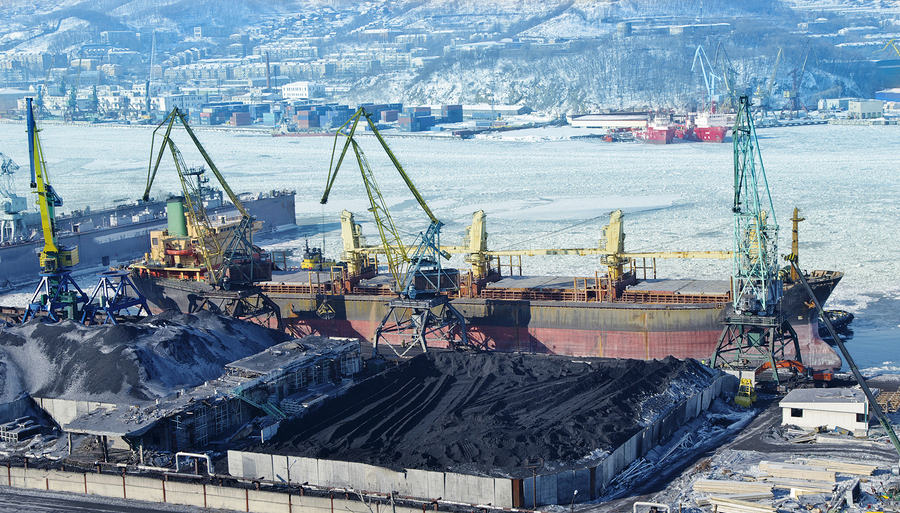President to Order Agencies To Consider the Climate
Air Date: Week of March 22, 2013

The Keystone pipeline may get another environmental review in light of the president’s new directive. (photo: bigstockphoto.com)
President Obama is expected to direct government agencies to consider the effects on climate change before they approve new projects. Vermont Law Professor Pat Parenteau tells host Steve Curwood that authority for the directive comes from the Nixon era law, National Environmental Policy Act.
Transcript
CURWOOD: From the Jennifer and Ted Stanley Studios in Boston, this is Living on Earth. I’m Steve Curwood.
President Obama has pledged to address climate disruption even if the Congress won’t, so he is rolling out an action plan based on existing laws, including the National Environmental Policy Act. More than 30 years ago Congress gave the President the power to require environmental impact assessments of the plans and projects of federal agencies ranging from the Forest Service to the Department of Energy.
Now the White House is poised to mandate climate security as part of those assessments, and that could mean trouble for a host of proposals including new power plants and perhaps the Keystone XL pipeline. Here to explain is Vermont Law Professor Pat Parenteau.
PARENTEAU: This will be a directive from the President to all of his executive branch agencies, and it would basically say, you have a new charge. When you're considering taking actions or authorizing developments, you must take the consequences of climate change into account, and that means in two respects.
One would be looking at whether the project will increase greenhouse gas emissions and whether that can be avoided, and the other would be, what are the impacts of climate change itself on, for example, land management or infrastructure projects like highways that might be built in coastal zones, that sort of thing.
CURWOOD: I need a history lesson here, Professor Parenteau. That involves how telling me how this new order relates to President Nixon’s National Environmental Policy Act, NEPA, which is a 1970 law.
PARENTEAU: Correct, it was signed by President Nixon in 1970. It basically says that for any proposal or major federal action that significantly affects the quality of the human environment, a detailed statement which has come to be known as an Environmental Impact Statement, must be prepared before the action is taken. It must be publicized for public comment, and it must accompany the decision-making process all the way up to the final agency decision. And then the regulations under NEPA require that the agency write a record of decision, which explains basically why the agency decided to proceed with the action that it proposed.
CURWOOD: So if I’m hearing you correctly, the NEPA isn’t going to stop one of these projects, but it sure is going to add a lot of time.
PARENTEAU: That's right, the Supreme Court has said that NEPA is a procedural statute, it requires disclosure of the facts, consideration of alternatives. In the end, the agency makes the decision, and it's not required to make the most environmentally beneficial decision, but it is required to at least think about what an environmentally preferable approach might be, and to disclose that to the public and others in this very public document.
CURWOOD: Which federal agencies are going to have the most work to do here? I’m thinking, what, Army Corps of Engineers, Surface Transportation Board, what other places?
PARENTEAU: Yes, the Army Corps of Engineers issues something on the order of 50,000 permits a year under the Clean Water Act for discharges related to various kinds of development - everything from real estate to energy projects. Surface Transportation Board has to approve new rail lines so all of the talk about exporting coal to Asia out of the Powder River basin in Wyoming and Montana are going to require new rail capacity as well as marine terminals to ship the coal overseas. That whole infrastructure from the mine mouth all the way to the coast and onto the ships overseas is going to require various forms of federal permits, approvals, perhaps financing.
CURWOOD: So the Export Import bank has a loan application, or guarantee application, in front of us to put up a coal-fired power plant in India. It would then have to consider the impact of the climate on that loan?
PARENTEAU: Yes, it would. In fact, the guidance that the President is indicating will be forthcoming from the Counsel on Environmental Quality would spell out in more detail what the content of those Environmental Impact Statements would have to have.
CURWOOD: What about the tar sands pipeline, the XL pipeline that has been proposed? And already, the State Department has had a supplementary Environmental Impact Statement for that.

The Keystone pipeline may get another environmental review in light of the president’s new directive. (photo: bigstockphoto.com)
PARENTEAU: Right, and it's unclear whether this guidance that’s being talked about would have any effect on Keystone XL because it’s already at the draft Environmental Impact Statement stage. The State Department is getting an awful lot of public comment, much of it is quite negative because the State Department is taking the position the pipeline itself isn’t going to have a major impact on the environment or on the climate. In part, says the State Department, because even if we don't approve the pipeline, Canada will find a way to export tar sands through another means.
CURWOOD: Now there’s certain threats to climate change like rising seas. So would this apply to say plans to put a building up whether or not it might be overtaken by those seas?
PARENTEAU: It would. Sea level rise is one of the most visible signs of climate change. As the federal government looks at things like flood insurance in some of these high hazard areas, it needs to take account of the fact that the old floodplains are changing, and that the risks of increasing flood events is something to be taken into account, and deciding what kinds of developments are going to be eligible for that kind of federal assistance and which might not.
CURWOOD: What kind of a reaction are you seeing from industry groups?
PARENTEAU: The reaction is to be expected. The industry groups are concerned about delays in getting approvals for some of these projects, particularly things like pipelines and energy projects. They're concerned that maybe consideration of some of these effects might be speculative and uncertain. They’ve raised questions about whether this is necessary. If you're going to do the analysis properly, it will require time and effort, so there's bound to be some argument about whether spending this much time on it is worth it.
CURWOOD: Of course, one of the reasons that the President is taking this tactic is because any kind of climate legislation does seem to be DOA in the US Congress at this point. How is Congress responding to the notion of having a mandatory environmental impact statements for federal agencies that consider climate change?
PARENTEAU: In the House of Representatives controlled by the Republicans, there’s already rumblings of efforts to block the President from doing this, criticism from some quarters even at the suggestion of doing this. At this point I think it's mostly hand-waving coming from certain quarters in the Congress. Whether that becomes something more significant we’ll have to wait and see.
CURWOOD: Pat Parenteau is Professor of Law at the Vermont Law School. Thank you so much, Pat.
PARENTEAU: You're welcome, Steve.
Links
Living on Earth wants to hear from you!
Living on Earth
62 Calef Highway, Suite 212
Lee, NH 03861
Telephone: 617-287-4121
E-mail: comments@loe.org
Newsletter [Click here]
Donate to Living on Earth!
Living on Earth is an independent media program and relies entirely on contributions from listeners and institutions supporting public service. Please donate now to preserve an independent environmental voice.
NewsletterLiving on Earth offers a weekly delivery of the show's rundown to your mailbox. Sign up for our newsletter today!
 Sailors For The Sea: Be the change you want to sea.
Sailors For The Sea: Be the change you want to sea.
 The Grantham Foundation for the Protection of the Environment: Committed to protecting and improving the health of the global environment.
The Grantham Foundation for the Protection of the Environment: Committed to protecting and improving the health of the global environment.
 Contribute to Living on Earth and receive, as our gift to you, an archival print of one of Mark Seth Lender's extraordinary wildlife photographs. Follow the link to see Mark's current collection of photographs.
Contribute to Living on Earth and receive, as our gift to you, an archival print of one of Mark Seth Lender's extraordinary wildlife photographs. Follow the link to see Mark's current collection of photographs.
 Buy a signed copy of Mark Seth Lender's book Smeagull the Seagull & support Living on Earth
Buy a signed copy of Mark Seth Lender's book Smeagull the Seagull & support Living on Earth

